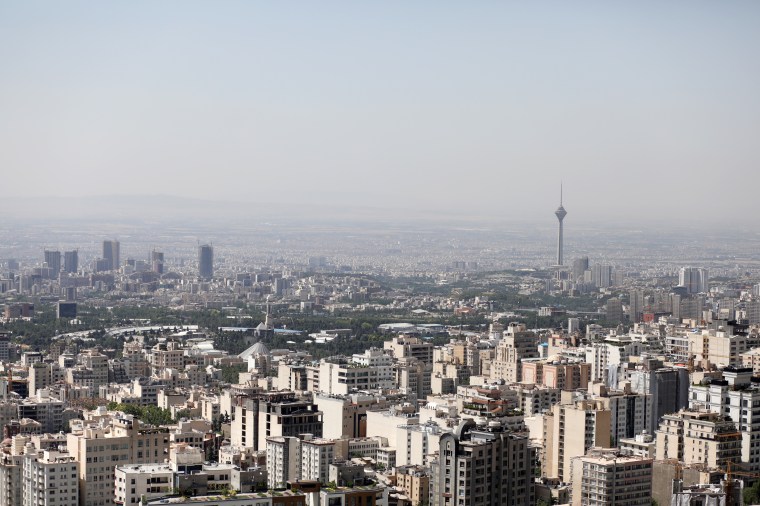Since the beginning of June, Iranian authorities have sentenced at least five journalists to prison sentences for their work, according to news reports and social media posts by the journalists.
On June 1, Branch 46 of Tehran’s Court of Appeals sentenced Majid Motalebzadeh, editor of the state-run Sedaye Eslahat newspaper, and Hadi Kasaeizadeh, the former editor of the semi-independent JamehNews news website, to one year in prison each for “spreading lies to disturb public opinion,” according to a report by the exile-run Human Rights Activists News Agency (HRANA).
The charges stemmed from a 2015 joint report by the two journalists on alleged corruption by Iran’s then Central Bank Governor Valiollah Seif, according to that report.
The pair were arrested shortly after the joint report was published, were detained for two months, and were released on bail, according to HRANA and news reports. In 2016, they were sentenced to two years each in prison, but were free while their appeals were processed, according to those reports.
The June 1 decision rejected Motalebzadeh and Kasaeizadeh’s final appeal, according to the HRANA report. The journalists have not begun their sentences as of June 24, and are still posting updates on their joint telegram news channel.
Seif was fired from his position at the Central Bank in July 2018, and was later convicted on financial rules violations, according to news reports.
On June 13, Branch 36 of Tehran’s Appeals Court sentenced Khosrow Sadeghi Borojeni, a freelance columnist and sociologist, to seven years in prison on charges of “colluding against national security and insulting the Islamic republic’s founder,” according to a tweet by Borojeni and news reports.
According to that tweet, which is available through the Internet Archive after Borojeni’s Twitter account was closed, the journalist is required to serve at least five of the seven years of his sentence. CPJ could not determine whether he had started his sentence as of June 24.
Borojeni was initially sentenced to eight years in prison in February, as CPJ documented at the time. He was first arrested on May 8, 2019, and was detained for six nights before being released on bail, according to reports.
Those news reports and the journalist’s tweet did not list any specific writings sparking his arrest.
On June 14, Judge Iman Afshari of Branch 26 of Tehran’s Islamic Revolutionary Court sentenced Kayvan Samimi, editor-in-chief of the center-left Iran-e-Farda magazine, to three years in prison for “colluding against national security,” HRANA reported.
Samimi was arrested on May 1, 2019, while covering a Labor Day demonstration in front of the Iranian parliament building in Tehran, as CPJ documented at the time. He spent 17 days in detention before being released on bail, according to HRANA.
In April 2020, Afshari sentenced Samimi to a six-year jail term at a hearing without the journalist or his lawyer being notified or summoned to attend the trial, according to that HRANA report.
Samimi disputed that verdict and requested a trial at which both he and his lawyer could be present; that trial was convened on May 18, 2020, and Samimi was found guilty, according to HRANA and news reports.
CPJ could not determine whether Samimi had begun his prison sentence as of June 24.
On June 16, a municipal court in Kermanshah, in western Iran, sentenced Shahram Safari, a freelance Kurdish journalist who also runs the local news Telegram channel “Rawezh Press,” to three months in prison over his COVID-19 reporting, HRANA reported.
The charges stemmed from an April 7 lawsuit filed by the state-run Kermanshah University of Medical Sciences, which alleged that Safari’s coverage of the COVID-19 virus on Telegram, particularly his statistics on the number of positive cases, was inaccurate, as CPJ documented at the time.
Safari was summoned to a local court in mid-April and was charged with “spreading lies, disturbing public opinion, providing a negative portrait of the clergy and publishing the statistics of the number of positive Coronavirus cases,” according to HRANA.
He posted bail and was released until his trial, that report said. CPJ could not determine whether he has filed an appeal or begun his sentence as of June 24.
CPJ was unable to find contact information for the Iranian judiciary for comment, as the body’s website did not load.
